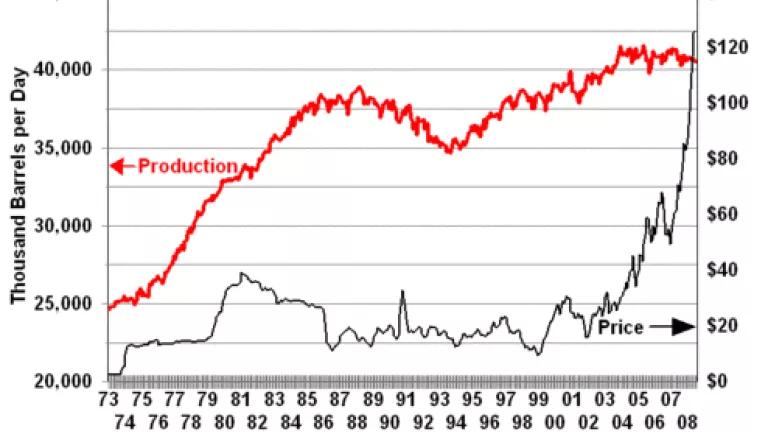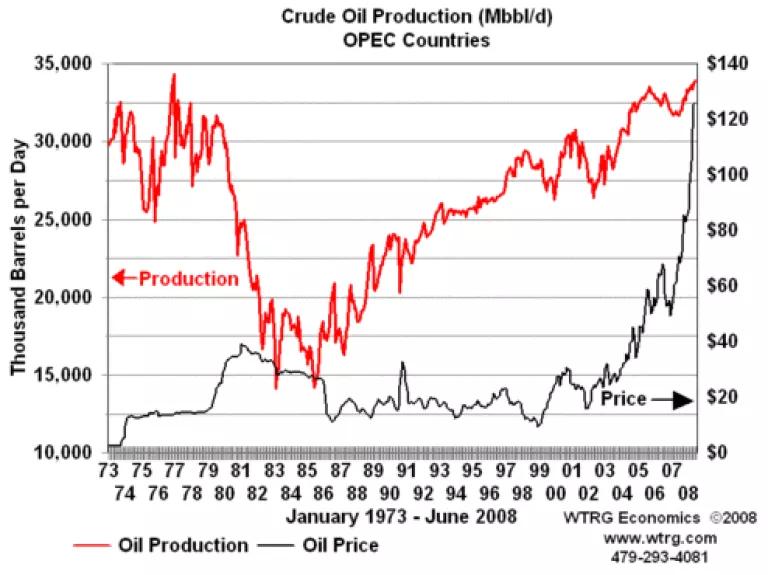
Check out this op-ed in today's Washington Post by Henry Kissinger and Martin Feldstein, called "The Power of Oil Consumers." It echoes what my colleague Andy Stevenson and I have said about untapped U.S. market power (for those posts, click here, here, and here), except that it expands on our point that the U.S. has clout as a "monopsony" player, proposing to expand that power to include other big consumers (the G-7 plus India, China and Brazil) to confront OPEC.
Collaboration with other consumers is a smart, commonsense idea as the global chess match over energy heats up. Michael Klare shows Putin's bold move in Georgia is part of this often-deadly global game here, and we can expect to be similarly outflanked until we develop a robust counterstrategy.
This fact is underscored when we look at projections and historic trends for global production. The International Energy Agency (IEA) projects that demand will increase by 7.2 million barrels a day in the next five years alone, with non-OPEC production increasing just 0.2 million barrels a day, or 0.5% annually (half as fast as the last five years, and one-quarter as fast as the previous five). Although it is slowing (explained in part by peaking of North Sea production), this is part of a continously upwards growth trend for non-OPEC producers (except for the period around the collapse of the Soviet Union, for obvious reasons), as you can see from the graph below (included thanks to WTRG Economics).
OPEC, meanwhile, has only just returned to historically high production levels as you can see in the graph below (again thanks to WTRG).

Given trends and projections, OPEC global market share should continue creeping upward (it's at about 45 percent now). And IEA projects their spare production capacity to rise in the next two years.
All of this means that OPEC's hand gets even stronger in the global game. Kissinger is right that we need to band together with other consumers to counter that power (and we're off to a good start since the U.S. alone controls 25 percent of global demand).
Kissinger misses the mark badly, however, when he discusses supply options and suggests a non-strategy strategy wherein anything goes. In a world where efficiency has barely been tapped (click here for an article where my colleague Rick Duke rightly points out the potential for an "efficiency surge") and where there is tremendous potential to rapidly scale up transportation energy alternatives such as sustainable biofuels and pluggable hybrid cars, we can and must lead the way up a low-carbon road, achieving BOTH energy and climate security.
Steering the nation through both generational challenges to our future -- energy and climate -- is doable, it will just take sustained, inspirational political will. Now is the time to pressure those who want to take the wheel this coming January to take us in the right direction, and fast.